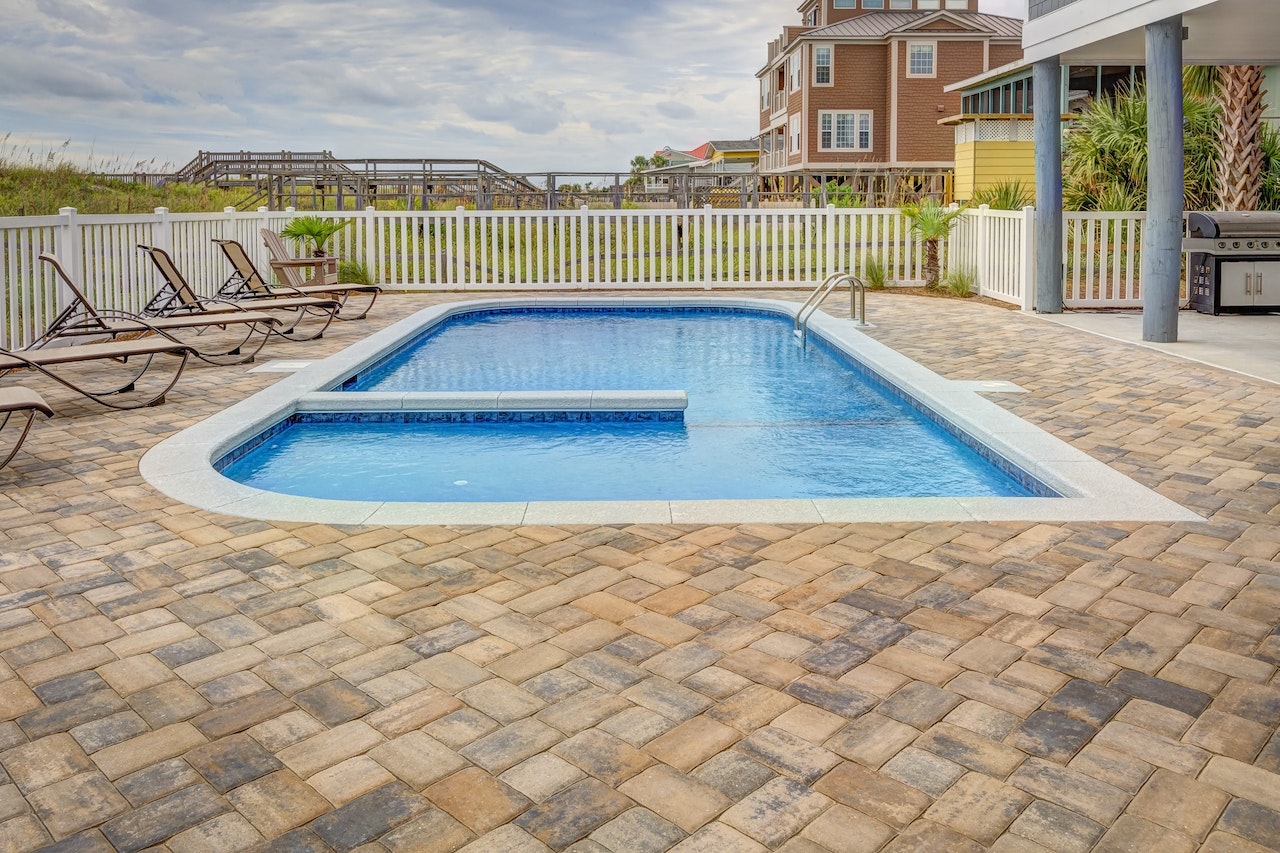If you’re not a fan of the downsides that a chlorine pool has, consider getting a saltwater pool installed instead. There are many health reasons to get a saltwater pool over a chlorine pool including being great for your skin, joints, respiratory system, and generally having little to no side effects compared to chlorine. It’s also easier to clean and maintain a saltwater pool as well.
Below, we discuss each of these benefits that a saltwater pool can provide for not just your skin but your overall health in more detail.
Top benefits of a salt water pool
Good for your skin
Chlorine kills microorganisms in the water that can make you sick. It basically attacks all organic matter, whether it’s a leaf in the water, pathogens, or even the natural oils that the body produces. This natural oil is what keeps our skin moisturized, and chlorine just strips it right off.
As a result, one of the most egregious side effects of chlorine is that it can dry out your skin. Most swimmers have perpetually dry, itchy, and cracked skin no matter how much moisturizer they use. Additionally, overexposure to chlorine can lead to rashes, blisters, and even a chemical burn.
Saltwater pools, on the other hand, are much more gentle on the skin. It can still wash off the natural oils on our body, but it is unlikely to cause rashes, blisters, or burns. Saltwater also acts as a natural exfoliator.
Swimming in salty water has even helped those with skin conditions like eczema, psoriasis, acne, and other skin conditions feel better, whereas they would be aggravated in chlorinated water.
Safer than chlorine
I’m going to make a lot of references to how safe salty water is relative to chlorine, so let’s just get this point out of the way.
Many of the side effects experienced by swimming in a chlorinated pool are often mis-attributed to chlorine; things like irritated eyes, skin, and respiratory issues tend to be caused by chloramine or other byproducts left behind after chlorine is used up.
That said, chlorine itself does have side effects, typically manifesting as symptoms like nausea, headache, chest tightness, coughing, and rashes or blisters on the skin. I’m talking about chlorine in its solid, powdered, and gas forms.
Furthermore, when stored improperly, it can corrode, poison, or be a fire hazard. These are not a concern when you use a saltwater generator to safely generate chlorine in a swimming pool.
As sanitary as chlorine
If you don’t know anything about saltwater pools, the last sentence you read might be a little confusing. How does a saltwater generator make chlorine? Shouldn’t it make salt?
What’s happening is the generator is converting dissolved salt into chlorine through a process called electrolysis. This produces chlorine in the form of hypochlorous acid and sodium hypochlorite, which are capable of neutralizing pathogens and algae as effectively as chlorine additives.
Unlike chlorinated pools where large concentrations of chlorine are added at one time, saltwater generators slowly dispense small amounts of chlorine at more frequent intervals, so the total amount of chlorine in the water is less concentrated and less likely to harm your skin or result in that “pool smell”.
Easier on the eyes
Ever tried swimming in chlorinated water without goggles? Then I’m sure you’ve experienced how itchy, red, and uncomfortable it felt afterwards. It’s not any better trying to open your eyes in a large saltwater body of water like the ocean. So how does a saltwater pool help you?
The concentration of salt in the ocean is 10 times higher than the amount of salt found in a saltwater pool. In fact, saltwater pools mimic the concentration of salt found in human tears, making it much less likely for your eyes to get irritated compared to chlorine or the ocean.
Doesn’t irritate your lungs
If you’re an avid swimmer or know someone who is, then chances are you might have noticed some respiratory issues like chlorine cough or asthma. Many swimmers get into the sport not having asthma, but then develop it after months and years of training. Then, after leaving the sport, they find that their asthma has seemingly disappeared. This is no coincidence.
Lung irritation is a common side effect of highly chlorinated pools. It is estimated that 25% of all elite swimmers are suffering from asthma. You might not realize it because they are keeping their symptoms in check with medications and inhalers, but their lungs are in distress.
If you already have asthma, allergy symptoms, or respiratory issues, swimming in a chlorinated pool will do you no favors. If you or someone in your family is sensitive to chlorine, a milder alternative is a saltwater pool, which as I mentioned, uses significantly less chlorine.
Less damaging to the pool
If chlorine is harsh enough to damage your skin, hair, and eyes, what do you think it’s doing to everything else? Be careful where you’re splashing your pool water; it might end up corroding nearby furniture, and over time, it can damage the pool itself.
Saltwater is much milder than chlorine, though it is also capable of doing damage. Water, in general, has a destructive effect. But, with a saltwater pool, the effects typically appear slower.
Wrapping up
Ultimately, if you or someone you know is sensitive to chlorine, you may find a saltwater pool to be a safe alternative. Despite the name, saltwater pools are not free of chlorine, but they use significantly less and therefore cause little to no adverse health effects.
That means you don’t have to worry about dry skin, rash, blisters, burns, respiratory issues, eye irritation, and so on, while maintaining the same level of disinfection as a chlorine pool. Even the maintenance is easier. There are many benefits to owning a saltwater pool, and more pool owners ought to consider adopting it over a chlorine pool.

